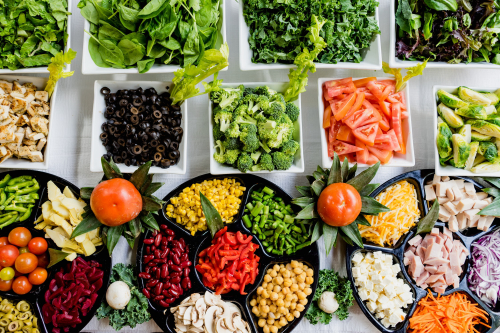
Have you noticed how your eating habits change the day after a bad night’s sleep? Chances are, you feel hungry often and reach for sweet, starchy, comfort food more than usual. This is not just an emotional response but is actually backed by science. Lack of sleep causes leptin (which tells your body when you’re full) to drop and ghrelin (a hormone that stimulates appetite) to rise.
The link between diet and sleep is more complex than just how much coffee you drink or how closely to bedtime you have that cup of tea. There’s also the question of your circadian rhythm, which is what keeps the body’s multiple functions going the way they should be, such as when you should sleep and wake, eat to feed hunger, and metabolise what you eat.
A meal that’s high in carbohydrates can be detrimental to your sleep, as it is known to increase the number of times you wake up in the middle of the night. If your diet is off kilter, your body clock will be too, which then throws the balance off everything it regulates. Sleep becomes erratic, moods swing between high and low, and nutrition goes down the drain as you’re more likely to make bad food choices. What a mess you’ll be in!
You’re likely to be cranky and simply give in to those cravings, but those foods will lead to more sleepless nights and before you know it, you’re stuck in a dysfunctional cycle with no end. Hence, it’s important to be mindful of what you eat. To improve the quality of your sleep, emphasise these foods in your diet:
Fill Up On Fibre
A study on 12,000 participants found a direct correlation between fibre intake and sleep duration: those who consumed the highest amount of fibre had the best sleep habits (6 to 8 hours of sleep) whereas those who consumed the least amount of fibre also slept the shortest (less than 5 hours). Check how much fibre you’re eating each day – the recommended daily amount if 25gm for women and 38gm for men.
Know Your Sweets
A high-sugar diet causes blood sugar levels to rise and fall, leading to a tendency to eat later in the day. When you consume sugar late at night, it energises the body and preps it for activity, making it hard for you to fall asleep. A night of poor sleep triggers sugar cravings the next day, and the vicious cycle keeps spinning. Not all sugars are the same though; there are natural sugars and there are refined or processed ones. The former, such as those found in fruits and root vegetables, can actually help promote sleep if eaten in small amounts before bed. That’s because the brain is fuelled primarily by glucose and when it runs out, it will wake you up.
Pack On The Proteins
Chicken, fish, lean meats, nuts, seeds … these protein sources are not only essential to your overall health but beneficial to sleep as well. Besides helping you stay fuller and better satiated, eating an adequate amount of protein helps the body generate trytophan. This amino acid triggers the production of melatonin, a hormone that helps induce sleep.
Go Mediterranean
The Mediterranean Diet – high in vegetables, fruits, olive oil, olives, beans, lentils, seafood, and Greek yogurt – is popular for many reasons, most notably for its heart-protecting and anti-ageing properties. It’s also been found to reduce insomnia and encourage better sleep. This is believed to be due to its high levels of fibre, low amounts of saturated fat, and good sources of magnesium (nuts) and melatonin (nuts, olive oil).
Bottom line, sleep is as much an integral part of your well-being as water, nutrients, vitamins and exercise. When you take good care of your overall health, you will optimise your sleep too.


























Comments